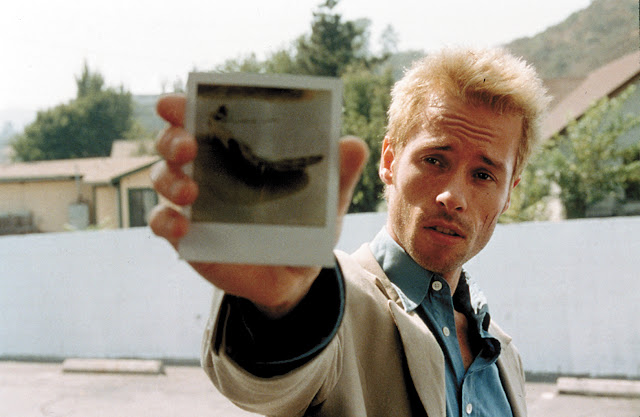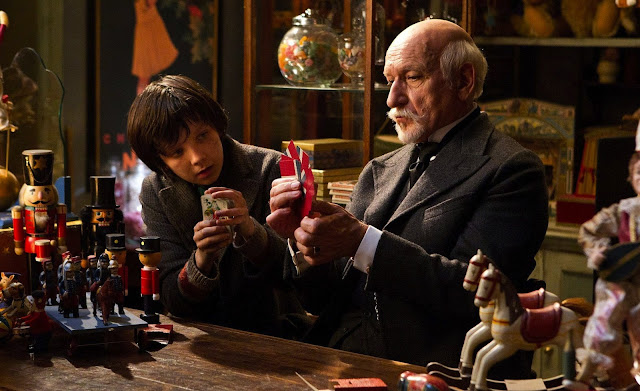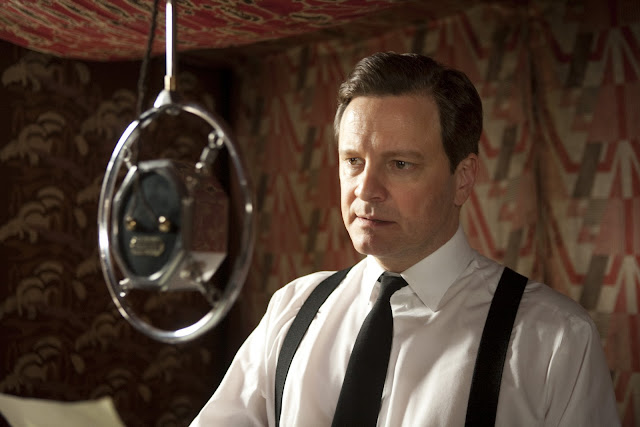Biography, Drama, Sport, 133 minutes
Directed by Bennett Miller
Starring Brad Pitt, Jonah Hill and Philip Seymour Hoffman
Moneyball is a refreshing change from the usual type of sports movie. How many times have you watched the story of an underdog triumphing? How many movies introduce us to a controversial coach who is initially resented because of his methods and then revered by all when he succeeds? This story is certainly a celebration of success, but not in the typical sense. In fact, it asks us to define success.
It’s based on the true story of how General Manager Billy Beane (Pitt) employed a new way of thinking in order to enable the Oakland Athletics to compete with the likes of the New York Yankees. He did this with just one third of the payroll of that available to the Yankees.The opening scenes show Beane negotiating with the team's owner. He knows that his payroll won't jump from $40 million to $120 million, but can he get a little more money to help the A's compete?
The first thing I was taught in my college marketing class was to define the problem. How you can analyze a problem if you don't know what it is? You won't solve anything until you know what you are trying to do. I find that I use the same technique in all areas of my life. If a friend needs help or advice, I ask a series of questions so that they can eventually define their own problem. It works. That's what Beane did at the start of Moneyball.
Beane’s first move was to hire Peter Brand (Hill); an economics graduate from Yale. Instead of relying on traditional scouting methods, Brand used statistical analysis to determine the true value of baseball players. Instead of paying huge salaries based on a player's potential, he sought out value by considering players who were believed to have flaws. These might include injury or advancing age. Beane collaborated with Brand to assemble a team on a low budget. Departing stars were replaced with players who were a good fit for the team.
I have a strong connection with the film because the way Beane and Brand think reminds me of how I manage my Fantasy Football teams. Which players are good value because age or injury has changed people's perceptions of their true ability? How much are this year's top draft picks really going to be worth when compared to proven veterans? I make those determinations every year when I build my team. Beane and Brand think like I do, and we tend to like people who are similar to ourselves.
I rely on my own way of thinking rather than following conventional wisdom. That doesn’t mean I will ignore everything, but I will question the opinions of others and decide whether I agree. It’s something I have done my entire life and one reason I review movies. You might not agree with me, and that's absolutely fine, but at least you know that I’m not just repeating the opinions of others. Take a look at my thoughts on The Artist if you want an example.
Groupthink is a dangerous thing. I encounter it every year in my Fantasy Football leagues when the rankings of the "experts" all start to look the same. If you go against the grain, you'll have to be ready to defend your view. As a result, people are afraid to say what they really think or act on their true instincts. It also happens in the workplace. In fact, you can find examples of groupthink every day if you seek out opinions on the Internet on just about any topic.
Back to Moneyball.
Look at how Beane's scouts present their opinions. How many are really their opinions, and how many of them fail to think outside the established framework?
The dialogue is intelligent and full of humor. Some of the scenes, such as Beane pursuing trades with other teams, are quite exciting. Pitt and Hill work well together and are in most of the scenes. One source of conflict is Coach Art Howe (Hoffman). He’s concerned about his own situation and future in the sport, and is reluctant to adopt Beane’s desired strategy.
I enjoyed Moneyball because it was different and the story was told in an appealing way. I won’t ruin the ending for those who don’t remember whether the A’s won the World Series, but I will say that the story doesn’t show a huge amount of baseball action. This is about the people behind the scenes and the way in which they affected the sport.
Rarely has 133 minutes of Dialogue been so interesting. The time passes almost too quickly. I've seen Moneyball about six times since buying it in January, so there's no need to wonder about the replay value. From my ramblings in this review, you can see how thought-provoking the story can be.
***Spoiler Alert***
One final point I would like to consider is Beane's decision at the end of the film.
Most of us are trained at a very young age to chase success and be the best we can be. Success is usually defined as having a good job, a great salary, expensive and prestigious possessions, and a traditional family. If we reach any of our goals, we set new ones and want more. We always want more.
Beane's final decision mirrored his thoughts on baseball management. He considered what would truly make him happy. I don't see people thinking along those lines very often. We are trapped by the expectations of society. It's groupthink on a grand scale. Ask your friends what they dream of. How many mention money? That's the wrong answer. Money is a tool that helps you live the way you want to live, but it's not the overall goal. The goal is different for everyone and should be what makes you happy. Does your lifestyle actually allow you time to enjoy that happiness?
Would you have made the same choice as Beane?
If you like Moneyball:
Another movie which includes baseball, but is really about something else is Field of Dreams, which I mentioned earlier in this series.
One of my favorite sports movies is Seabiscuit. It stars Tobey Maguire, Jeff Bridges and Chris Cooper, and tells the story of an underdog. Like Moneyball, several unusual methods are used to achieve success. The racing scenes are spectacular, but the movie succeeds due to the strength of the story and the quality of the acting. Bridges finally won an Oscar for Crazy Heart, but he's better in Seabiscuit.
Return to index of 100 movies to see before you die.
Return to index of every review on the site.
Moneyball is a refreshing change from the usual type of sports movie. How many times have you watched the story of an underdog triumphing? How many movies introduce us to a controversial coach who is initially resented because of his methods and then revered by all when he succeeds? This story is certainly a celebration of success, but not in the typical sense. In fact, it asks us to define success.
It’s based on the true story of how General Manager Billy Beane (Pitt) employed a new way of thinking in order to enable the Oakland Athletics to compete with the likes of the New York Yankees. He did this with just one third of the payroll of that available to the Yankees.The opening scenes show Beane negotiating with the team's owner. He knows that his payroll won't jump from $40 million to $120 million, but can he get a little more money to help the A's compete?
The first thing I was taught in my college marketing class was to define the problem. How you can analyze a problem if you don't know what it is? You won't solve anything until you know what you are trying to do. I find that I use the same technique in all areas of my life. If a friend needs help or advice, I ask a series of questions so that they can eventually define their own problem. It works. That's what Beane did at the start of Moneyball.
Beane’s first move was to hire Peter Brand (Hill); an economics graduate from Yale. Instead of relying on traditional scouting methods, Brand used statistical analysis to determine the true value of baseball players. Instead of paying huge salaries based on a player's potential, he sought out value by considering players who were believed to have flaws. These might include injury or advancing age. Beane collaborated with Brand to assemble a team on a low budget. Departing stars were replaced with players who were a good fit for the team.
I have a strong connection with the film because the way Beane and Brand think reminds me of how I manage my Fantasy Football teams. Which players are good value because age or injury has changed people's perceptions of their true ability? How much are this year's top draft picks really going to be worth when compared to proven veterans? I make those determinations every year when I build my team. Beane and Brand think like I do, and we tend to like people who are similar to ourselves.
I rely on my own way of thinking rather than following conventional wisdom. That doesn’t mean I will ignore everything, but I will question the opinions of others and decide whether I agree. It’s something I have done my entire life and one reason I review movies. You might not agree with me, and that's absolutely fine, but at least you know that I’m not just repeating the opinions of others. Take a look at my thoughts on The Artist if you want an example.
Groupthink is a dangerous thing. I encounter it every year in my Fantasy Football leagues when the rankings of the "experts" all start to look the same. If you go against the grain, you'll have to be ready to defend your view. As a result, people are afraid to say what they really think or act on their true instincts. It also happens in the workplace. In fact, you can find examples of groupthink every day if you seek out opinions on the Internet on just about any topic.
Back to Moneyball.
Look at how Beane's scouts present their opinions. How many are really their opinions, and how many of them fail to think outside the established framework?
The dialogue is intelligent and full of humor. Some of the scenes, such as Beane pursuing trades with other teams, are quite exciting. Pitt and Hill work well together and are in most of the scenes. One source of conflict is Coach Art Howe (Hoffman). He’s concerned about his own situation and future in the sport, and is reluctant to adopt Beane’s desired strategy.
I enjoyed Moneyball because it was different and the story was told in an appealing way. I won’t ruin the ending for those who don’t remember whether the A’s won the World Series, but I will say that the story doesn’t show a huge amount of baseball action. This is about the people behind the scenes and the way in which they affected the sport.
Rarely has 133 minutes of Dialogue been so interesting. The time passes almost too quickly. I've seen Moneyball about six times since buying it in January, so there's no need to wonder about the replay value. From my ramblings in this review, you can see how thought-provoking the story can be.
***Spoiler Alert***
One final point I would like to consider is Beane's decision at the end of the film.
Most of us are trained at a very young age to chase success and be the best we can be. Success is usually defined as having a good job, a great salary, expensive and prestigious possessions, and a traditional family. If we reach any of our goals, we set new ones and want more. We always want more.
Beane's final decision mirrored his thoughts on baseball management. He considered what would truly make him happy. I don't see people thinking along those lines very often. We are trapped by the expectations of society. It's groupthink on a grand scale. Ask your friends what they dream of. How many mention money? That's the wrong answer. Money is a tool that helps you live the way you want to live, but it's not the overall goal. The goal is different for everyone and should be what makes you happy. Does your lifestyle actually allow you time to enjoy that happiness?
Would you have made the same choice as Beane?
If you like Moneyball:
Another movie which includes baseball, but is really about something else is Field of Dreams, which I mentioned earlier in this series.
One of my favorite sports movies is Seabiscuit. It stars Tobey Maguire, Jeff Bridges and Chris Cooper, and tells the story of an underdog. Like Moneyball, several unusual methods are used to achieve success. The racing scenes are spectacular, but the movie succeeds due to the strength of the story and the quality of the acting. Bridges finally won an Oscar for Crazy Heart, but he's better in Seabiscuit.
Return to index of 100 movies to see before you die.
Return to index of every review on the site.


















































